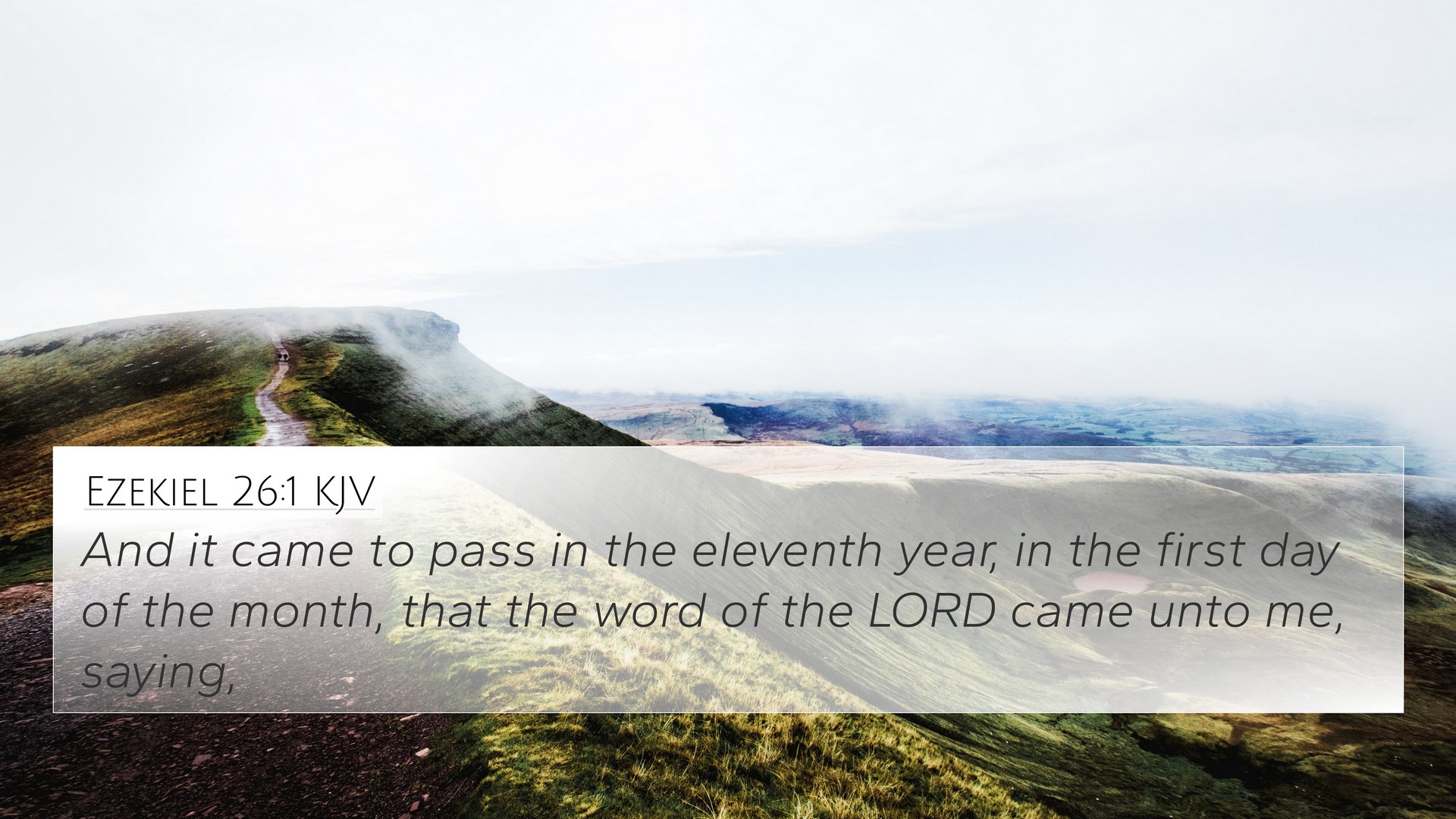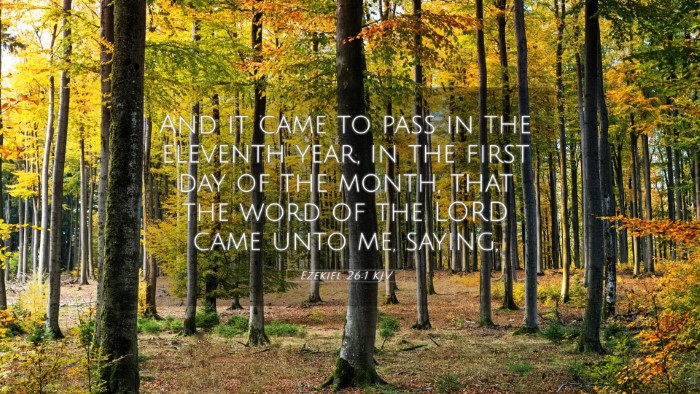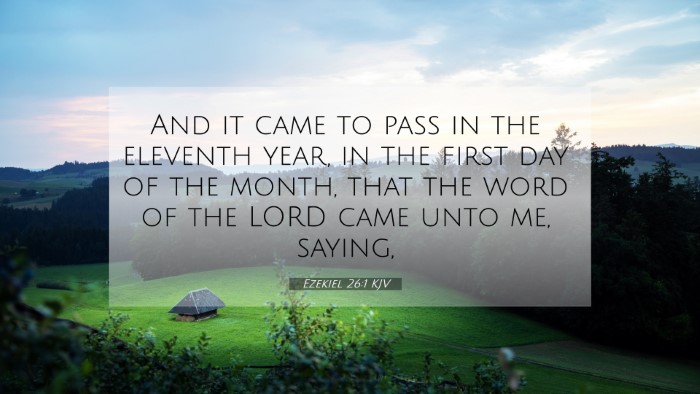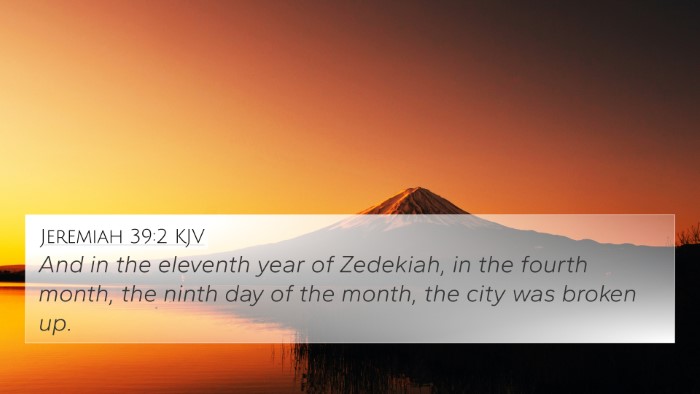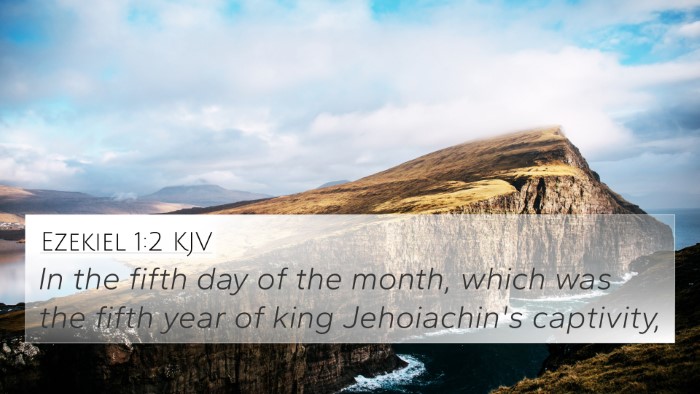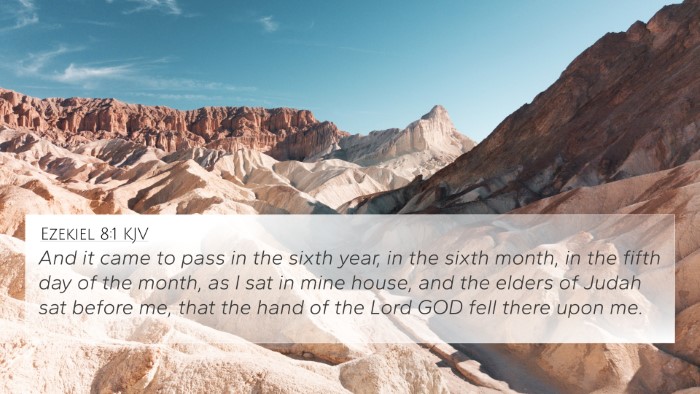Ezekiel 26:1 - Summary and Meaning
Bible Verse: Ezekiel 26:1
In Ezekiel 26:1, the prophet Ezekiel proclaims the impending judgment upon the city of Tyre. This is significant as it demonstrates God's sovereignty over nations and His power to bring about just retribution against those who oppose Him.
Historical Context
The background of this prophecy is rooted in Tyre’s history, which was known for its wealth, commerce, and prideful disregard for God. Ezekiel prophesied this destruction in response to the city’s mockery of Jerusalem following its fall. This prophecy serves both as a warning to Tyre and an assurance to God’s people that He will not allow their enemies to triumph forever.
Interpretation Insights from Public Domain Commentaries
- Matthew Henry: Henry emphasizes the importance of God's judgment. He notes that God will employ nations as instruments of His wrath, and Tyre’s downfall is a lesson to all prideful cities that defy God.
- Albert Barnes: Barnes highlights the intended audience of this prophecy, focusing on both Tyre and the Israelites. He discusses the socio-economic impact of Tyre’s destruction, as it was pivotal in trade and commerce, revealing that its fall would affect the surrounding nations.
- Adam Clarke: Clarke provides additional insights into how Tyre's destruction foreshadows the ultimate judgment day. He suggests that the city represents all prideful cities that seek their glory apart from God’s Will.
Biblical Cross-References
Ezekiel 26:1 connects with several other Bible verses that illuminate its message:
- Isaiah 23:1-18: This passage similarly addresses the impending doom of Tyre and its associated nations.
- Jeremiah 25:22: Here, God lists the nations that will face judgment alongside Tyre, reinforcing the interconnectedness of these prophecies.
- Zechariah 9:3: Zechariah discusses the fate of Tyre and its wealth, linking it back to the prophecies of destruction.
- Ezekiel 27:32-36: This verse describes the lamentation for Tyre, showcasing the sorrow that will follow its destruction.
- Ezekiel 28:18-19: Although directed to the prince of Tyre, this passage reveals God’s disdain for its pride, illustrating a deeper theme of judgment.
- Revelation 18:17-19: The fall of Babylon parallels the fall of Tyre, showing how prideful cities will face God’s ultimate judgment.
- Psalm 48:12-14: This passage contrasts the proud city with God’s everlasting presence, framing Tyre's future judgment against the backdrop of Jerusalem's permanence.
Thematic Connections
The themes that resonate throughout Ezekiel 26:1 include:
- Divine Justice: God’s righteousness demands that those who oppose Him face judgment.
- Pride and Downfall: The scripture serves as a warning against hubris and self-reliance.
- Hope for the Righteous: While judgment falls upon the wicked, those who remain faithful can find solace in God’s protection.
Conclusion
In conclusion, Ezekiel 26:1 reveals the seriousness of God's judgments and the important truth that nations cannot stand against His sovereign will. By studying related scriptures, believers can see a thematic tapestry of God’s justice woven throughout the Bible, reinforcing the notion that all who pride themselves against God shall ultimately face retribution.
Using Bible Cross-References for Deeper Understanding
For readers seeking to engage with scripture more deeply, utilizing tools for Bible cross-referencing can enhance one's study. Engage with a Bible concordance or a cross-reference Bible study guide to better identify connections. By examining parallels and thematic connections, you can grasp the interplay of various biblical texts, adding depth to your understanding.
